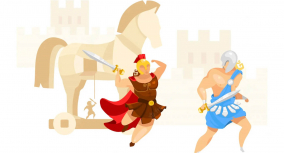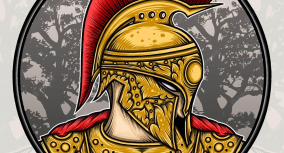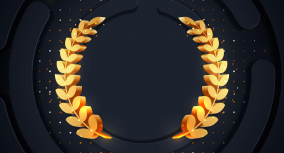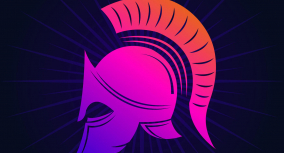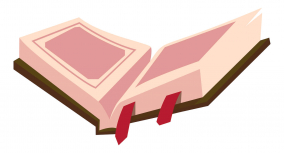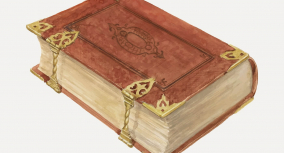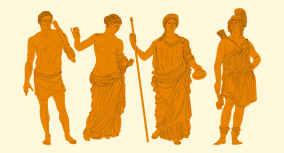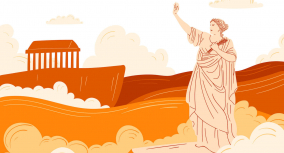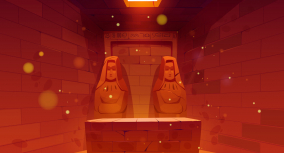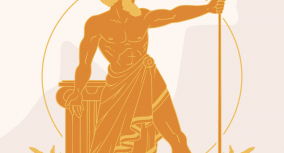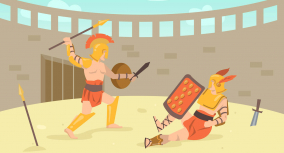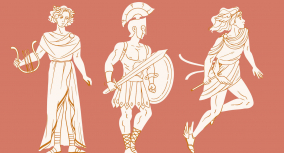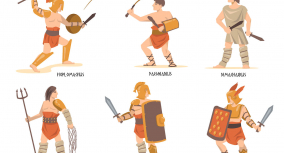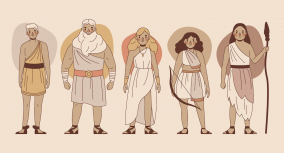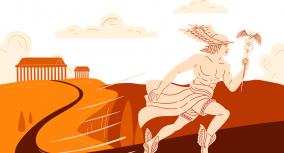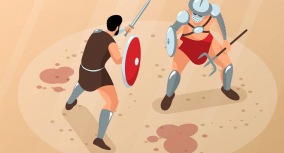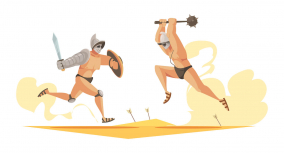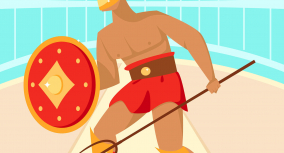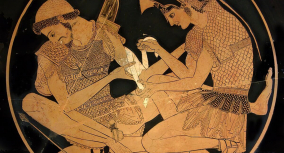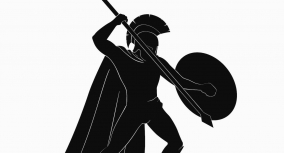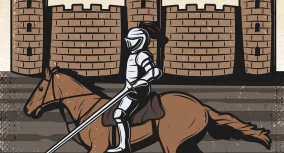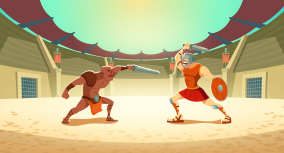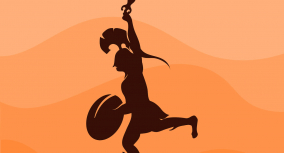The Iliad‘s characters are numerous, including ordinary humans, gods, and heroes:
- All human characters can be divided according to their affiliation with the Achaean or Trojan camps.
- There are also gods like Athena, Apollo, and Ares who intervene in battles by favoring one or another army.
- The third category of The Iliad main characters is heroes, who are essentially demigods. They are more powerful than humans but still mortal. They can be found in both armies.
Discover more on this page prepared by Custom-Writing.org experts! Here, you’ll see a detailed The Iliad character map and information about Achilles, Agamemnon, Patroclus, Hector, and other participants of the Trojan War. The characters are organized according to their type: the Achaians, the Troyans, and the gods. We’ve also illustrated their characteristics with notable quotes taken from Samuel Butler’s translation.
🗺️ The Iliad Character Map
Below you’ll find a The Iliad character map. It contains the key characters that appear in the poem.
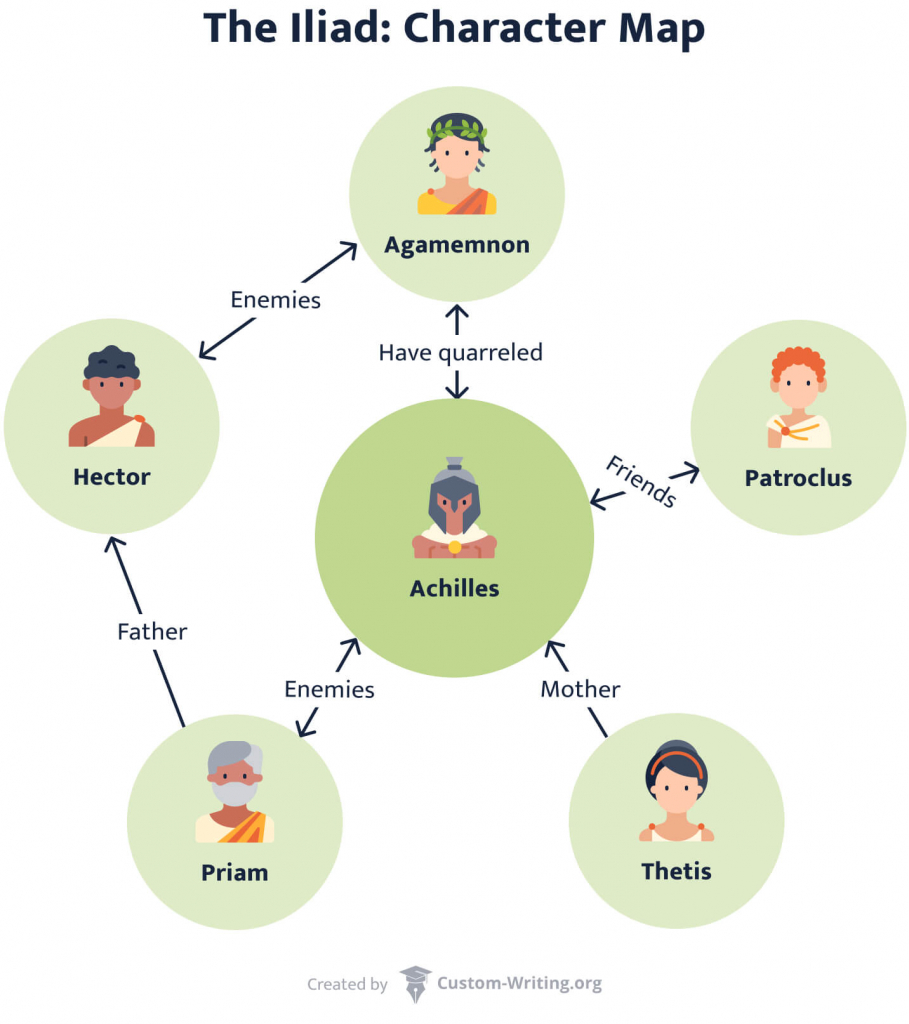
⛵ The Achaeans in The Iliad
The Achaeans (also Danaans or Argives) are from Achaea, a region of Greece. In The Iliad, it is a generic name that refers to all the ancient Greeks. Achaeans came to Troy to collect Helen, the wife of Menelaus, who was the king of Sparta.
Achilles
Achilles is the key hero in The Iliad. The narrative is told with account for his experience of it. He is a half-god because Thetis, a sea nymph, is his mother. Peleus, the king of Myrmidons, is Achilles’ father. The hero is the best warrior in Agamemnon’s army. His most prominent act was killing Hector, the Trojan prince.
Achilles Character Analysis
Achilles is a mighty warrior. But he is also prideful. Achilles thinks so much about revenging Agamemnon that he does not limit himself to lay down his weapons. He wants the Achaeans to lose the war to make Agamemnon suffer. For this purpose, Achilles asks his mother to request help for Trojans from Zeus. The hero does not take into account that his fellow warriors will have to suffer together with Agamemnon.
Once, Achilles’ mother told him that he had two fates. He could die an honorable death in the Trojan war or return home and live a long and unremarkable life. The first variant was about glory, and Achilles chose it. He wants to be remembered ages later.
Meanwhile, when Achilles returns Hector’s body to Priam, he is portrayed as a merciful and wise commander. We can conclude that he is a kind person who still cannot keep his temper in check. Most likely, he does not have enough motivation to stay calm. Rage and aggression were positive characteristics for a warrior.
Achilles’ Quotes from The Iliad
You are steeped in insolence and lust of gain. With what heart can any of the Achaeans do your bidding, either on foray or in open fighting?
The Iliad, Achilles, Book I
He may offer me ten or even twenty times what he has now done, nay—not though it be all that he has in the world, both now or ever shall have… He may offer me gifts as the sands of the sea or the dust of the plain in multitude, but even so he shall not move me till I have been revenged in full for the bitter wrong he has done me.
The Iliad, Achilles, Book IX
Go, Patroclus, and ask Nestor who it is that he is bearing away wounded from the field; from his back I should say it was Machaon son of Aesculapius, but I could not see his face for the horses went by me at full speed.
The Iliad, Achilles, Book XI
Mother, Olympian Jove has indeed vouchsafed me the fulfilment of my prayer, but what boots it to me, seeing that my dear comrade Patroclus has fallen—he whom I valued more than all others, and loved as dearly as my own life?
The Iliad, Achilles, Book XVIII
Why, true heart, are you come hither to lay these charges upon me? I will of my own self do all as you have bidden me. Draw closer to me, let us once more throw our arms around one another, and find sad comfort in the sharing of our sorrows.
The Iliad, Achilles, Book XXIII
Agamemnon (Atrides)
Agamemnon is the commander of the Achaean army. He is also the king of Mycenae and represents a reckless type of leadership. Besides, Agamemnon lacks critical thinking and composure. He needs a wise advisor, and Nestor successfully plays the role.
The following case illustrates Agamemnon as a selfish and opinionated person. Calchas, a seer, is asked to give a prophecy so that Agamemnon would know how to stop the plague. Although Calchas is afraid of the wrath of Agamemnon, he reveals its reasons. The Achaeans should return Chryseis to her father to stop Apollos’ punishment. This advice goes in line with Achilles’ opinion, which insults Agamemnon.
Achilles and Agamemnon
In the beginning, Agamemnon takes Achilles’ war prize, Briseis. To repay for the insult, Achilles withdraws himself and his men from the battle. When the Achaeans were losing their positions, Agamemnon sent Ajax, Odysseus, and Phoenix to persuade Achilles to come back. They offered him a treasure and promised to give Briseis back. Achilles rejected the offering. But when Patroclus was killed, he returned to avenge him. Thus, the clash between the commanders was settled.
Agamemnon’s Quotes from The Iliad
I will not free her. She shall grow old in my house at Argos far from her own home, busying herself with her loom and visiting my couch; so go, and do not provoke me or it shall be the worse for you.
The Iliad, Agamemnon, Book I
I wish that your limbs were as supple and your strength as sure as your judgment is; but age, the common enemy of mankind, has laid his hand upon you; would that it had fallen upon some other, and that you were still young.
The Iliad, Agamemnon, Book IV
Cruel Jove gave me his solemn promise that I should sack the city of Troy before returning, but he has played me false, and is now bidding me go ingloriously back to Argos with the loss of much people. Such is the will of Jove, who has laid many a proud city in the dust as he will yet lay others, for his power is above all.
The Iliad, Agamemnon, Book IX
All things are in the hand of heaven, and Folly, eldest of Jove’s daughters, shuts men’s eyes to their destruction. She walks delicately, not on the solid earth, but hovers over the heads of men to make them stumble or to ensnare them.
The Iliad, Agamemnon, Book XIX
I call Jove the first and mightiest of all gods to witness, I call also Earth and Sun and the Erinyes who dwell below and take vengeance on him who shall swear falsely, that I have laid no hand upon the girl Briseis, neither to take her to my bed nor otherwise, but that she has remained in my tents inviolate.
The Iliad, Agamemnon, Book XIX
Other Achaeans
Patroclus
Patroclus is Achilles’ cousin and best friend. When Achaeans start losing, Patroclus asks Achilles to put on his armor, take his horses and troops and fight for the Greek side. The Trojans lose many people, but Patroclus dies in a fight with Hector. It was a significant loss for Achilles, and he promises not to bury Patroclus until he kills Hector.
Diomedes
Similar to Achilles and Agamemnon, Diomedes is one of the best fighters among the Achaeans. Once Achilles has put his hands into his pockets, Diomedes’ role becomes more critical. When he injured Aeneas, the goddess of love came to rescue her son. Diomedes wounds Aphrodite in her wrist. In Book 6, Diomedes and Glaucus exchange their armor as a sign of their friendship despite the Trojan War. This moment is essential, as it shows that human relationships are more important than military clashes.
Odysseus
Odysseus is the most realistic warrior among the Achaeans. He is wise and practical. Odysseus does not show any character development. He is a role-model king, unlike Agamemnon. His decisions are rational and successful when followed. His role is to highlight the drawbacks of Achilles and Agamemnon.
Great Ajax
Telamon’s son looks like a giant. He is the second-best warrior in the Greek army. In Book 7, the Achaeans choose Great Ajax to fight Hector. The battle lasts the whole day, and Great Ajax manages to hurt Hector with a spear and hit him with a stone. In Book 14, he throws a rock at Hector again and almost kills him.
Little Ajax
Ajax the Lesser (or Ajax of Locris) is the son of Oileus and a nymph. He is a skilled warrior. Still, his quick temper sometimes gets him into trouble. When Little Ajax joined the war, he brought forty Locrian ships to support the Achaeans. During the funeral games after Patroclus’ death, he argues with Idomeneus.
Nestor
He is the oldest Achaean commander who often serves as Agamemnon’s advisor. Nestor’s words are wise and reasonable. Nestor often tells digression stories to exemplify the current situation and help the leader make the right choice. He used to be a mighty warrior. That is why his advice is experience-based.
Phoenix
The Achaean commander raised Achilles and Patroclus when they were children. In Book 9, Phoenix, Odysseus, and Ajax try to persuade Achilles to rejoin the battle. Phoenix burst into tears, pleading with Achilles to put down his anger. In Book 16, he leads Myrmidons to action. He also comforted Achilles after the death of Patroclus.
Antilochus
One of Helen’s suitors, he accompanied his father and brother to the Trojan War. Antilochus was Achilles’ friend, and was commissioned to bring the news of Patroclus’ death. When Nestor, his father, was attacked, Antilochus saved him at the expense of his life. He is the youngest of the Achaean princes.
Helen
In Iliad, this woman was the former wife of Menelaus, who was stolen by Paris. Aphrodite promised her to Paris as the most beautiful woman in the world. It caused the Trojan war. She first appears when Iris, disguised as her sister-in-law, comes to distract her from weaving. Helen’s tapestry depicted the suffering of people during the Trojan War. It symbolizes that she feels responsible for the military conflict and multiple deaths.
🏛️ The Trojans in The Iliad
The Trojans inhabited the Troy (or Ilium), a fortified city in the northwest of modern Turkey. They protected their citadel from Achaeans for almost ten years. Priam, the king of the Trojans, stole Helen. This event provoked the war. The Iliad calls Troy the favorite city of Zeus.
Hector
The son of Priam and Hecuba is a fearless warrior. He is the commander-in-chief of the Trojan army and Apollo’s favorite. Hector is the best Trojan warrior and one of the main characters in The Iliad. He never lets his personal interests interfere with his duties and responsibilities.
He is a good father and husband. Book 6 describes an idyllic scene where Hector and Andromache play with their baby son. This description foreshadows Hector’s death. To avenge Patroclus’ death, Achilles kills Hector and drags his corpse around his friend’s tomb. The Iliad finishes with Hector’s burial.
Hector’s Quotes from The Iliad
Paris, evil-hearted Paris, fair to see, but woman-mad, and false of tongue, would that you had never been born, or that you had died unwed. Better so, than live to be disgraced and looked askance at.
The Iliad, Hector, Book III
Honoured mother, bring no wine, lest you unman me and I forget my strength. I dare not make a drink-offering to Jove with unwashed hands; one who is bespattered with blood and filth may not pray to the son of Saturn.
The Iliad, Hector, Book VI
With what face should I look upon the Trojans, men or women, if I shirked battle like a coward? I cannot do so: I know nothing save to fight bravely in the forefront of the Trojan host and win renown alike for my father and myself.
The Iliad, Hector, Book VI
There is one omen, and one only—that a man should fight for his country. Why are you so fearful? Though we be all of us slain at the ships of the Argives you are not likely to be killed yourself, for you are not steadfast nor courageous.
The Iliad, Hector, Book XII
I pray you by your life and knees, and by your parents, let not dogs devour me at the ships of the Achaeans, but accept the rich treasure of gold and bronze which my father and mother will offer you, and send my body home, that the Trojans and their wives may give me my dues of fire when I am dead.
The Iliad, Hector, Book XXII
Other Trojans
Aeneas
He is a nobleman and the son of Aphrodite and prince Anchises. He is also Hector’s and Paris’ second cousin, which makes him a member of the royal line. Although Aeneas is a minor character, gods save him more than once because his destiny is to become the next Trojan king.
Chryseis
She was the daughter of Chryses, Apollo’s priest. Her name literally means “Chryses’ daughter.” Agamemnon captured her and refused to give her back Chryses offered a ransom. The priest asks Apollo to send a plague, and it devastates the Achaeans. To stop the disease, Agamemnon has to return Chryseis. He takes Briseis from Achilles to console himself. Chryseis and Briseis involuntarily caused Achilles’ refusal to fight for the Achaeans. Their role in The Iliad is similar to that of Helen. All three of them are the apple of discord.
Paris
Aphrodite promised him the most beautiful woman in the world. So, he abducted Helen from Menelaus and caused the Trojan war. The son of Priam and Hecuba and the Prince of Troy often acts like a coward, and Hector, his brother, often reproaches him. He is a handsome man.
Priam
He is the son of Laomedon and the last king of Troy. Priam is the father of Hector and Paris and Hecuba’s husband. He is a good king and a brave man. He went to the Achaean camp to collect his son’s body, knowing that he could be killed.
🗿 Gods in The Iliad
In the epic poem, gods resemble people. They quarrel, make backroom deals, weave plots, and have their favorites among the people. Meanwhile, deities can influence the outcome of every battle. They pick sides and sometimes even switch back and forth. Gods personify the interference of natural forces and destiny.
Zeus
In The Iliad, the king of the gods is the most powerful of his kind. When the other gods are wounded, they go to him. On the mount of Ida, he checks the scales of fate. Because of that, he cannot favor any of the sides. Zeus acts according to destiny.
Hera
She is Zeus’ wife and sister. She is the goddess of childbirth and women. Hera hates Troy and fanatically supports the Achaeans. She even deceives Zeus to ensure that the Trojans lose the war. But it does not mean that she likes the Greeks. Long ago, Paris said that Aphrodite is the most beautiful goddess. It made Hera jealous, and she wanted revenge.
Apollo
Apollo (or “Phoebus”) is the god of truth, prophecy, poetry, music, archery, medicine, and light. He is the son of Zeus. Apollo favors the Trojan side. In Book I, he sent the plague that killed many Achaeans and was the reason why Achilles and Agamemnon argued.
Athena
Athena (or “Pallas”) is the goddess of wisdom, war, and womanly crafts. She supports the Achaeans. The daughter of Zeus helps Diomedes in the absence of Achilles. She used to mentor Diomedes’ father, Tydeus. Once, she has a duel with Ares, her male counterpart, and wins it.
Aphrodite
Aphrodite is among those who caused the Troja war. She helped Paris to get Helen, the most beautiful woman in the world. Aphrodite also saved Paris from death during his fight with Menelaus. She covered him with a cloud of darkness and teleported him to his bedroom.
Thetis
Thetis is one of the minor characters in The Iliad, but her actions influence the entire story. She has the gift of prophecy and predicts the two possible destinies to her son, Achilles. There was a prophecy that Thetis would give birth to a boy who would become greater than his father. For this reason, Zeus did not marry her and made her marry a mortal.
Thank you for reading this article! You might also want to take a look at The Iliad essay topics collection. Another great option is using our topic-generating tool. Any questions left? Check the QA section!
🔗 References
- Achilles in The Iliad by Homer | Story, Traits & Description
- Achilles – Greek Hero, Trojan War & Facts – HISTORY
- Agamemnon (Person) – World History Encyclopedia
- The Character of Hector in The “Iliad” – JSTOR
- List of Characters in ‘The Iliad’ – ThoughtCo
- Iliad and Odyssey: Hector and Menelaus Comparison
- Greek Heroic Motifs in “The Iliad”: Agamemnon and Priam
- Homer’s Portrayal of the Gods in the Iliad
- The Iliad’s Helen and The Odyssey’s Penelope – Compare and Contrast
- Agamemnon in the Iliad: Character Analysis
- Andromache in the Iliad: Character Analysis
- Comparing Achilles and Hector in the Iliad
- Job’s God from the Bible and Greek Gods from Iliad
- The Judgment of Paris in The Iliad: Analysis
